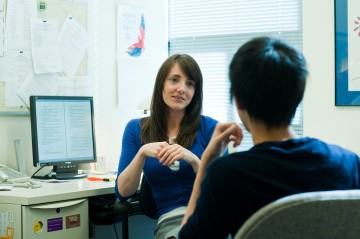The Indian Residential School Truth and Reconciliation Commission of Canada, Vancouver, September 18, 2013
*The Commission will ensure there are appropriate health supports available at all TRC events. Other health support services including professional counselling and cultural supports by an Elder may be requested through Health Canada (TRC Website).
This information sheet is designed to give you some ideas on how to cope with the complicated feelings that may arise for you during the Indian Residential School Truth and Reconciliation Commission presentation, which takes place in Vancouver from September 18–21, 2013.
The information presented at this event may bring up thoughts, feelings and memories, which may be overwhelming, distressing, or difficult to understand. We would like to encourage you to pay special attention to self-care during and after this event. We also want you to know that there are organizations in the community who can help should you feel distressed.
How might I feel when I hear the stories being told at the TRC event?
At the TRC event you may experience many emotions including feeling anxious, angry, afraid, or you may feel sad, frustrated and tired. Throughout the day you might also experience times of joy when hearing stories of strength and resilience.
Whatever you feel it’s important to remember that all your emotions are uniquely your own and they are normal reactions to the many stories you will listen to at the event. Those reactions may last for a while or you may feel better once you leave for the day. Whatever happens for you, your feelings are important to notice and honour as you witness the many stories told by Elders, family, friends, and community members.
Together, we can support one another with understanding, giving space to let one another cry or express our emotions as we need to, and most importantly by ensuring we are as supportive to ourselves as we are to others. There will also be staff available all throughout the day should someone need more time and support at the event.
If you are attending the event here are some things to think about as you plan for the day
| Supporting Myself: | Supporting Others: |
|
|
Self-care:
- Nurture yourself before and after the TRC event. Make sure to eat and sleep when you need to and maintain your routines in the best way you can.
- There are many ways to take care of your emotions including writing at the event or keeping a journal, exercising, dancing, talking to your Elders, and engaging in your spiritual practice or traditional ceremonies. Find practices that allow you to express your emotions in safe and healthy ways.
- Give yourself time to do what you need to. It’s important to find what fits for you when thinking about self-care and remember that everyone’s way of taking care of themselves is different.
- On the event day and after this day is over find help when you feel like difficult emotions are not lessening and you need support to cope.
How can I contact a counselor if I am a student attending UBC?
To access an initial appointment, drop by UBC Counselling Services any time between 9:30 and 3:30 Monday through Friday. Please let reception know if your concerns are urgent. Additional appointment times are available for urgent concerns. After hours, our phone line will connect you to the Vancouver Crisis Centre.
| UBC COUNSELLING SERVICES |
| Brock Hall, Room 1040 Tel: 604-822-3811 www.students.ubc.ca/livewell
|
Counselling Services provides confidential counselling services and programs for admitted and registered UBC students, including initial consultation and referral, short term individual and group counselling.
Students requiring longer-term assistance receive interim counselling until connected with appropriate external mental health services. If you are referred internally for follow-up individual counselling, you will be matched to one of our short-term counselling programs on the basis of the nature and urgency of your needs.
COMMUNITY CONTACTS:
The Truth and Reconciliation Commission of Canada – Health Support Services for Former Indian Residential Schools Students:
An Indian Residential Schools Crisis Line (1-866-925-4419) is available 24 hours a day for anyone experiencing pain or distress as a result of his or her residential school experience. You can also call the Crisis Line to get information on other health supports provided by the Health Canada Indian Residential Schools Resolution Health Support Program.
Indian Residential School Survivors Society
Main Office: 911 – 100 Park Royal South, West Vancouver, BC V7T 1A2
Toll Free: 1-800-721-0066
Main Office: 604-925-4464
Email: reception@irsss.ca
Website: www.irsss.ca
Distress Line Numbers:
Greater Vancouver: 604-872-3311
Toll free, Lower Mainland and Sunshine Coast: 1-866-661-3311
TTY: 1-866-872-0113
BC-wide: 1-800-SUICIDE (784-2433)
Seniors’ Distress Line: 604-872-1234
